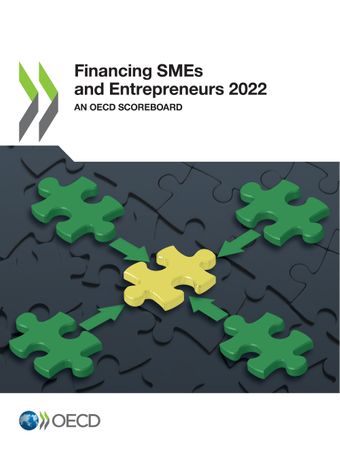"The COVID-19 crisis caused profound disruptions in the global economy, with SMEs and entrepreneurs, particularly hard hit. Swift measures implemented by governments and public financial institutions provided a crucial lifeline for liquidity-strapped SMEs.
The 10th edition of Financing SMEs and Entrepreneurs 2022: An OECD Scoreboard sheds light on the impacts of the crisis on SME finance, tracking the latest developments in debt, equity, asset-based finance, and framework conditions, along with recent policy developments for 48 countries around the world. It shows that lending continued to flow to SMEs during the pandemic, with unprecedented growth in outstanding SME loans. What is more, credit conditions relaxed significantly: interest rates registered record lows, interest rate spreads narrowed considerably, and collateral requirements declined in most Scoreboard countries.
In contrast, alternative sources of finance such as leasing and factoring declined significantly, in part because of the large uptake of credit. Evidence on equity finance shows a resilient venture capital sector, with some fragility in early-stage finance. The thematic chapter of this report assesses the evolution of SME financing support during the crisis, from the rescue to recovery phases. It documents a fall in the level of SME-related support in national recovery packages compared to earlier rescue measures."
The report was prepared by the OECD in English language. Click here to access the report.
Source: OECD
Illustration: OECD/Shutterstock/Roman Gorielov



